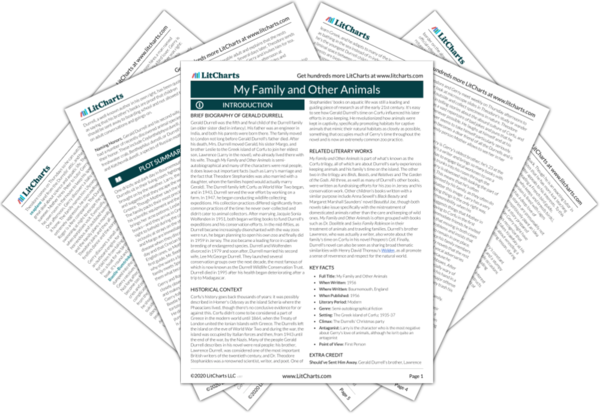Here, when Gerry accepts Kosti's explanation without finding it strange in the least, it shows again that Gerry now behaves very much like a local and accepts these absurd practices as normal. Further, this only makes Kosti more interesting, which adds more credence to the novel's implication that accepting absurdity as a good and normal thing makes life more fun and fulfilling.
